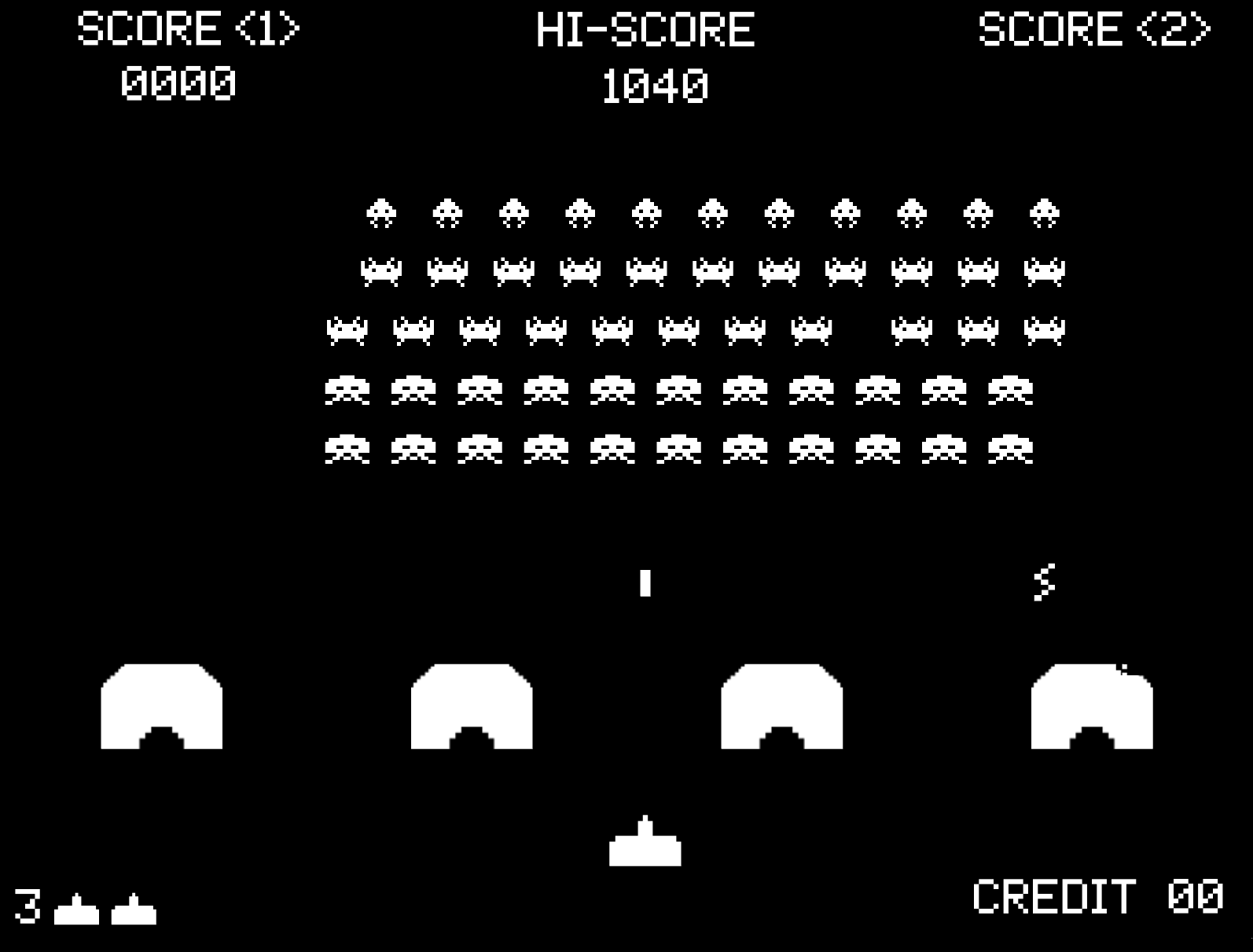Clone the Classics - Space Invaders with Swift and SpriteKit
Following on the heels of Asteroids with Sprite Kit, the introduction of the Swift language made me feel like another crack at the whip. So here's my take on Space Invaders. This time, I went for OS X as a platform, again using SpriteKit, but this time using Swift as the primary language.

One thing from my Asteroids app I wasn't entirely happy with were the simple graphics, relying on SKShapeNode to approximate the vector-based ship and titular Asteroids. With Space Invaders, vectors weren't really an option, so this time, I got serious about my graphical assets.
I got hold of a nice font for scores and the like from Fonts2U, and a second font that provided a near-complete set of authentic-looking sprites from fontvir.us.
What's missing
I'm not quite done yet! Most noticeably, there is currently no sound, and no two player mode (but I left the second player score in there for the aesthetics). I also need to add missile animations and tweak sizes and speeds to better match the original.
Thoughts on Swift
As a first impression, I love Swift as a language. It's got a really nice balance between the learning curve and the power available to a developer. Developing using Swift has certainly been a lot quicker than Objective-C.
I was working on this project through a few of the XCode betas prior to the official release of Swift, and a lot changed under me while I worked. Every time for the better, clearing up some annoyances or taking away the need for the odd hack I'd resorted to.
However, I'm not sure how quickly Swift might supplant Objective-C as the primary language in anyone's toolbox. The big hurdle may well be OSX support. iOS updates have a great track record for user adoption, but historically, OSX upgrades haven't happened so quickly - although Mavericks greatly improved these rates. You can only build Swift apps for the last two versions: OSX 10.9 and up, and iOS 7 and up, so time will tell if the free Yosemite upgrade makes Swift development viable.
While you can use Objective-C libraries in Swift, there are a few places where the abstraction isn't clear or breaks down (handling #defines for example), so there's a little bit of fiddling to cross the barrier. Besides which, CocoaPods - an awesome dependency manager for XCode projects - shows no signs of supporting Swift any time soon.
For the time being, I'm going to take a hybrid approach, using Objective-C for some libraries, and Swift for the main UI. Hopefully I'll be able to go fully Swift soon.
Source
Want to play around with my code? Feel free! You can check out the full source below:
